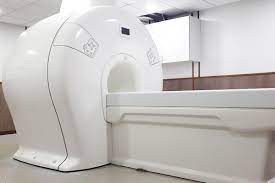First Indian-made MRI scanner to be launched for clinical work in October
- The first made-in-India MRI scanner is set to unveil its first clinically validated product in October at the Sathya Sai Institute of Higher Medical Sciences, Bengaluru.
- It is developed by the Bangalore-based Voxel Grids Innovations Private Limited.
Helium Shortage and MRIs
- Since 2006, the world has been battling a shortage of helium.
- Reasons
- It is sourced primarily from natural gas reserves, which are becoming increasingly scarce.
- The Russia-Ukraine war has further squeezed liquid helium supply.
- Helium’s primary use in MRI is as a coolant to maintain low temperatures for superconducting magnets.
- The shortage has impacted MRI facilities adversely, including in India.
Current Scenario
- India currently has about 4,500 MRI scanners, which is a third of what is required.
- The scarcity means higher costs, with prices ranging from ₹5,000 to ₹25,000 for MRI services.
- Customized machines by multinational companies come with high costs and limited accessibility.
Magnetic Resonance Imaging (MRI)
- It is a medical imaging technique used in radiology to form pictures of the anatomy and the physiological processes of the body.
- MRI scanners use strong magnetic fields, magnetic field gradients and radio waves to generate images of the organs in the body.
The Made-In-India MRI
- It avoids dependence on scarce liquid helium by using liquid nitrogen for cooling.
- Other Innovations include bottom-up software design and customized hardware.
- The design also enables faster scans.
- It would be “40% cheaper” than the ones currently available in the market.
- The cost of scanning will be potentially cut by 30%.
- This addresses accessibility issues for MRI scans in India, especially in rural areas.
- The scanner weighs 2.3 tonnes lighter than the average scanner.
- This allows it to be mounted on mobile platforms and transported to healthcare settings outside cities.
Prelims Takeaway
- MRIs
- Helium


